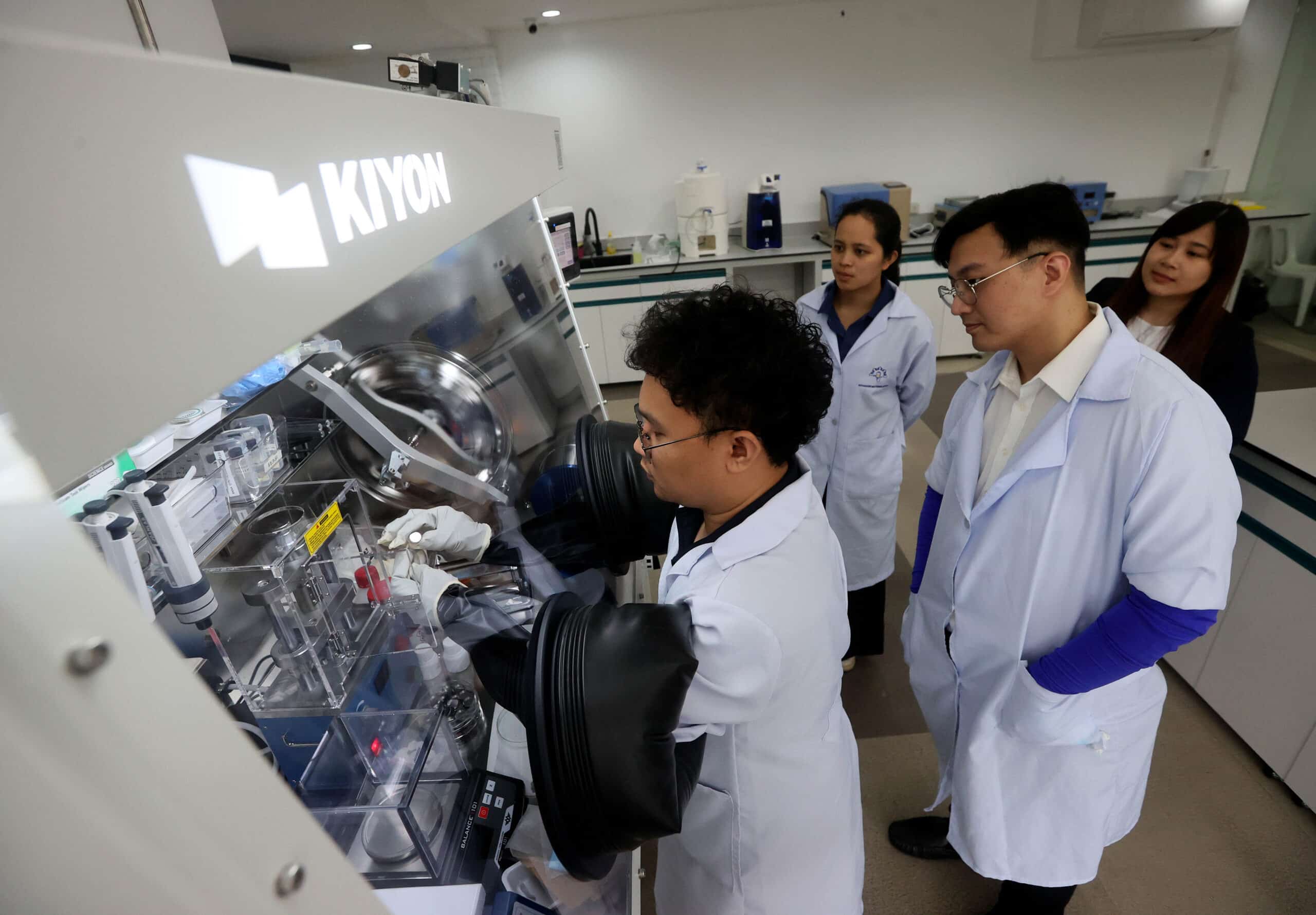PH battery development: A startup joins the charge

FIRST MILESTONE AHEAD From its laboratory in Quezon City, Nascent Technologies hopes to unveil by the end of the year its prototype sodium-ion coin cell battery, a milestone for the company that was set up in May 2022. Photos taken on Thursday. —MARIANNE BERMUDEZ
The vibrant Philippine startup scene has won its fair share of venture capital from here and abroad, but the flow of funding has gone primarily in the direction of players operating and innovating in the financial technology or fintech space.
According to the latest data from global business intelligence platform Statista, as much as half of the funds received by local startups in 2021 went to the fintech sector, mainly due to increased digitalization and multiple government campaigns to boost financial inclusion and digital payment adoption.
Two of the three unicorn startups—or those valued at $1 billion and not listed on the stock exchange—are in the fintech sector: the companies operating GCash and Maya.
This means that startups from all other fields must compete to get a slice of the other half.
John Echauz knows only too well how challenging it is to secure funds for a young company like Nascent Technologies, the startup he now leads as chairperson and cofounder.
Article continues after this advertisement31 pitches
Formally set up in May 2022, Nascent has joined the charge, so to speak, into a field just beginning to be explored among local entrepreneurs: battery energy storage.
Article continues after this advertisementFilipino consumers know their imported nonrechargeable “baterya,” of course, for their radios, watches, mobile phones, etc. But Nascent represents the first domestic attempt to develop rechargeable high-energy-density batteries.
“We made 31 pitches, and every conglomerate said pass,” the 50-year-old Echauz said of his early struggles to find investors.
The conglomerates explained that they were not keen on putting their money in Nascent Technologies because they were not willing to take on what is known in the business as “technology risk,” or the likelihood that the systems or tools in development would not deliver the intended results once out in the market.
The repeated rejections, however, did not discourage Echauz, one of the Young Global Leaders of the World Economic Forum, for he strongly believed in what Nascent wanted to bring to the market and had the brain trust to deliver it.
He found that team in a group of experts now led by company cofounder Joey Ocon.
Ocon is one of a handful of electrochemical engineers in the Philippines and, outside his work for Nascent, heads the Laboratory of Electromechanical Engineering of the University of the Philippines Diliman.
Energy transition
Together, Echauz and Ocon plan to bring to the country and the world a battery storage system that can help in the Philippines’ energy transition, allowing the country to move away from fossil fuels and achieve its target of having renewable energy account for half of the country’s energy mix by 2040.
This awareness of its role in the bigger energy scheme of things is conveyed by Nascent in its mission: “Supercharging the Net Zero transition.’’
“Specializing in battery energy storage technology for both stationary and transportation applications, Nascent Technologies recognizes the critical role of energy storage in balancing the variability of renewables and meeting growing energy demands,” the company said on its website.
“With a focus on decarbonizing industries, [it] emphasizes the potential of emerging energy storage solutions to support the clean energy transition,” it added.
Lim, Lopez backing
Echauz initially financed the development out of his own funds but later got a boost from his former boss, Jose Ma. Lim, retired head of Metro Pacific Investments Corp. (MPIC), still sits on the board of several MPIC subsidiaries and affiliates.
Another believer was Federico Lopez, chair of First Philippine Holdings Corp. subsidiary First Philec, the country’s largest manufacturer of transformers.
Lopez likewise put in needed capital, as Nascent Technologies is aligned with his group’s own thrust to foster sustainable and resilient energy infrastructure.
Their timely and critical support encouraged the group to forge ahead in its quest to bring to the market a proudly Filipino-developed battery storage system.
First targets
Now running the country’s first private advanced battery research laboratory in Quezon City, the company looks forward to a milestone at the end of the year with the unveiling of its prototype sodium-ion coin cells resulting from materials research and development work of Filipino scientists in the past year.
With their partnerships with international companies for initial cell sourcing, Nascent will be able to deploy its sodium-ion battery packs within the year for field-testing in local applications, such as backup power in areas experiencing frequent brownouts.
Beyond these first major targets, Echauz hopes for a buildup of momentum.
Energy storage technologies may not be as familiar as, say, the internet cloud, he said. But the world—or at least the industrialized nations determined to shrink their carbon footprint—is heading in that direction, inevitably drawing laggard nations in its wake.
And Nascent hopes to be there to catch the wave.